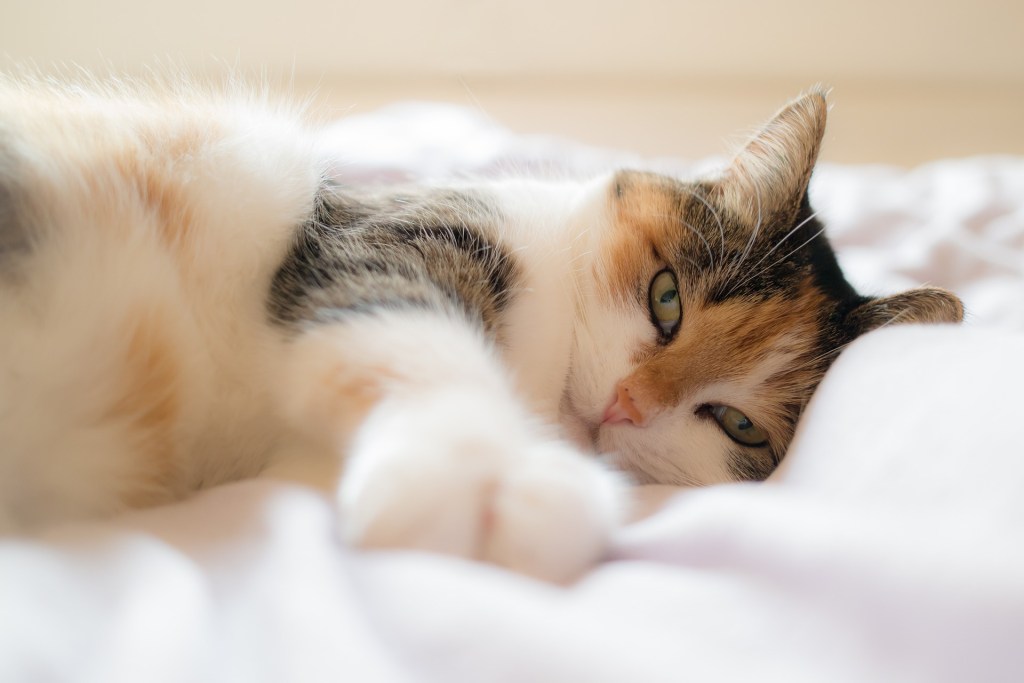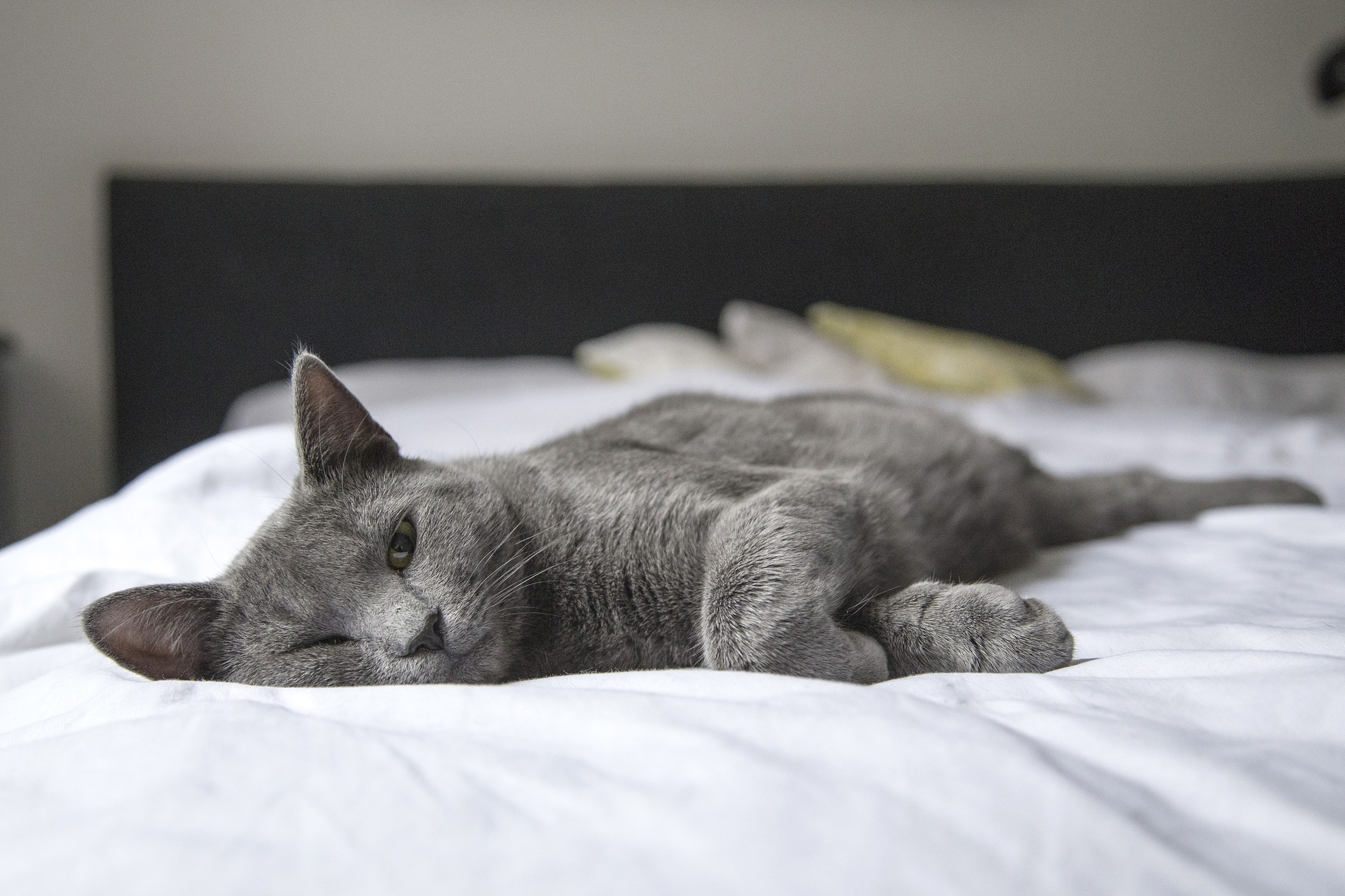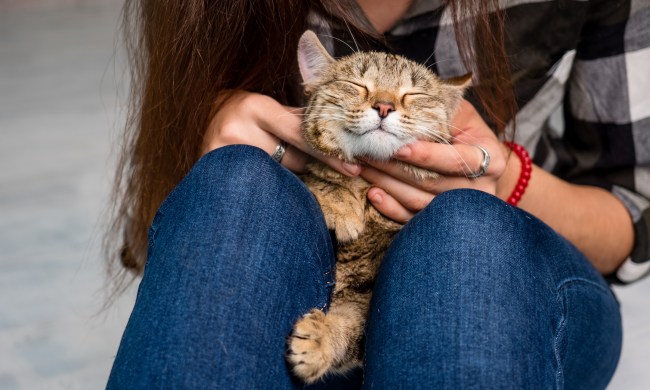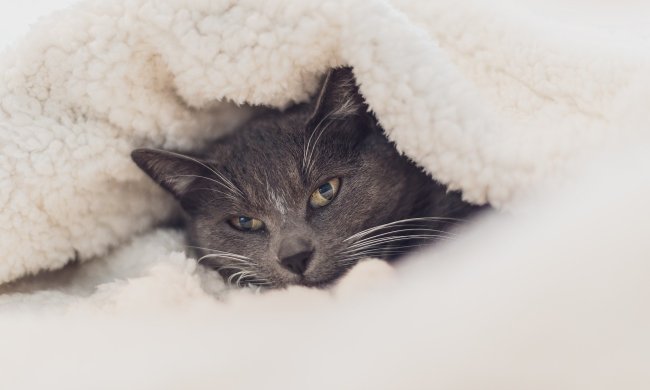One of the major benefits of having a cat is the companionship that he provides, and you might find it comforting to have your cat sleep in bed with you at night. If your cat doesn’t already sleep in your bed, understanding how to get your cat to sleep with you can increase your chances of persuading him to start this behavior. Remember that cats are independent and particular, so getting your cat to join you in bed can take some time. These tips can help encourage your cat, but some cats just prefer to stick to their own beds at night.
Spend time bonding with your cat
So, how do cats choose whom to sleep with? A cat will look for a person whom they feel they can trust and whom they like, so it’s important to bond with your cat before you can expect him to start sleeping with you. Look for ways to build a relationship with your cat, like by being the person to feed him and by playing with him daily.

Establish a bedtime schedule
Establish a schedule so that your cat knows when you’ll be going to bed each night. Try to go to bed at the same time so your cat gets used to it. Ideally, make your bedtime the same time that everyone else in the house goes to bed, so there’s no one left awake for your cat to socialize with.
Make your bedroom a safe space
Don’t expect your cat to immediately decide to sleep in your bed. First, work on making your bedroom feel like a safe space for him. Move some of his toys into the bedroom, play with him in the room, and keep other pets, particularly dogs, out. You want your cat to see your bedroom as a refuge.
Move his cat bed to your bed
Ideally, you should set up your cat’s bed or favorite sleeping blanket in your room, preferably on the floor near your bed. Once he’s gotten in the habit of sleeping in that area, you can try moving the bed or blanket up to your bed. The familiar smell and object can encourage your cat to curl up for a nap on your bed.
Get your cat ready for bed
Establish a bedtime routine that will help your cat get ready to go to sleep. Spending some time playing with him a half-hour or so before you go to bed can tire him out so he’s ready to sleep. You might find it helpful to feed your cat a small meal after playtime. This mimics how he would hunt and eat prey in the wild and then would naturally curl up to sleep and recover from the exertion.

Make your bed extra soft
Putting a supersoft comforter or nice fleece or wool blanket on your bed can make it extra appealing to your cat. If there’s a nearby window with sun streaming in during the day, this can also encourage your cat to hop up on your bed and relax. You might turn up the heat in your room during the winter so it’s the warmest spot in the house, which can encourage your cat to start napping and sleeping in the room.
Spend time lounging in bed
Rather than just getting into bed and going to sleep, spend some time in bed while you’re awake so you can engage with your cat. Read a book or watch some TV and pat your cat or play with him a little to get him tired out and ready to sleep.
While having your cat sleep in bed with you can be comforting and a great way to bond, think carefully before encouraging this behavior in your cat. Some cat owners find that they don’t sleep well when their cat is in bed with them, and sleeping with a cat nearby can aggravate allergies. If your cat is a sound sleeper, chances are the arrangement will work out, but if he’s highly active or doesn’t sleep through the night, you might lose some z’s. Just make sure the decision is right for you before you start encouraging your cat to sleep in your bed.


